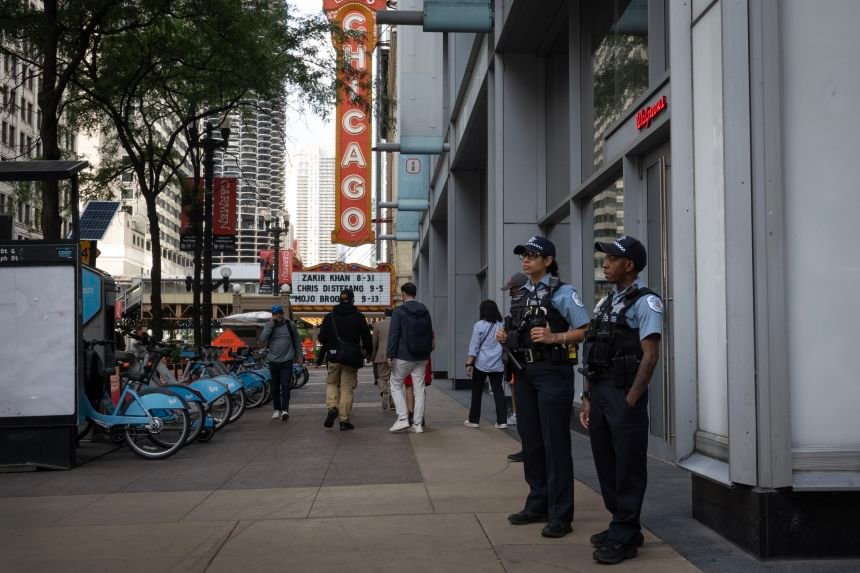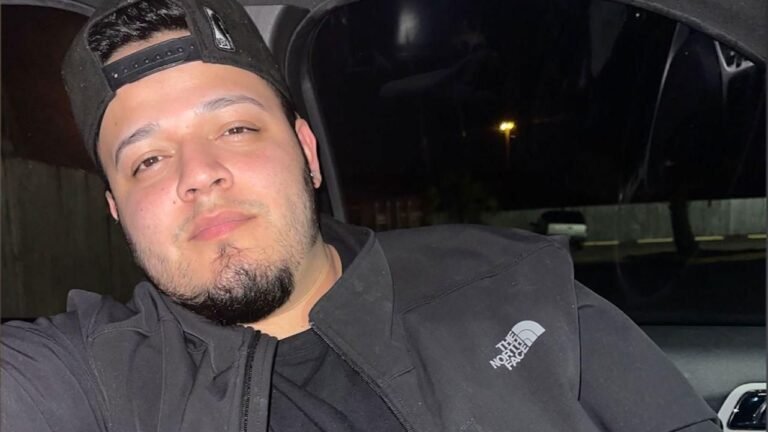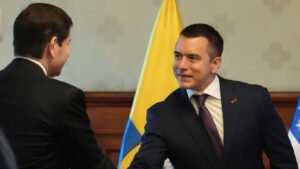After weeks of warnings from President Donald Trump that Chicago could be the next U.S. city to see the National Guard patrolling its streets, local leaders are trying to get ahead of the curve—from the governor preparing for a legal battle to activists and organizations anticipating possible intimidation—even though it’s still unclear whether the troops will even show up.
Officials in Illinois have reportedly heard that the National Guard will be deployed by Friday and ready to deploy as early as Saturday, in line with an expected increase in immigration enforcement, but no one from the Trump administration has informed the state of its plans, Democratic Governor J.B. Pritzker said Wednesday.
Meanwhile, Vice President J.D. Vance assured reporters on Wednesday that there are “no immediate plans” to send troops to Chicago, after Trump, the day before, called it “the most dangerous and worst city in the world, by far” following a violent Labor Day weekend.
The president also stated that the federal government would intervene, although without saying when.

While denouncing it, local and state politicians are working to determine how to respond to the possible action or whether they can prevent it.
Speaking to community leaders on Wednesday, Pritzker said he and his administration plan to do everything they can to maintain the position. However, as they prepare, uncertainty over the details of the deployment leaves staff in an unstable situation.
Here are some of the efforts being made as the National Guard’s presence looms over the city:
The State prepares for the legal fight
Pritzker said Tuesday that the state would not file a lawsuit against the administration until they know Trump’s justification for the deployment, but promised that if troops are activated in Chicago, legal action would be taken.
“We will certainly go to court,” Pritzker said.
Illinois has already demonstrated its willingness to fight federal action in court, joining a multi-state lawsuit against the administration’s effort to cut off federal aid, including Head Start school programs and shelters for victims of domestic violence, for people who cannot prove they have legal status to be in the United States.
President Trump’s plan is not only a bad strategy, but is illegal, Illinois Attorney General Kwame Raoul said about the expected deployment of the National Guard.
Pritzker also made it clear on Wednesday that he is trying to prepare the state on all possible fronts, even protecting himself by not calling the president to discuss the situation.
He’s going to end up in court, and that’s going to be a fact they’ll use in court, that the governor called for help, and I’m sorry, I’m not going to provide him with evidence to support his desire for the court to rule in his favor,” he said.
The governor also asked residents to be prepared to register any Immigration and Customs Enforcement activities they see, which could help document whether they are doing something wrong or to keep them honest.
City orders police not to cooperate with federal agents
Mayor Brandon Johnson, one of the most enthusiastic critics of Trump’s threats to send military personnel to the streets of Chicago, issued orders over the weekend, so the Chicago Police Department will not cooperate with federal agents in the latest White House bid.
No CPD member shall be assigned to joint police patrols, arrest operations or other law enforcement personnel together with federal law enforcement, military personnel, or National Guard units participating in the implementation of the Civil Immigration Act, the order provides.

Johnson’s order also guides the city departments to “exercise all available legal and legislative avenues to resist the coordinated efforts of the federal government” that violate the rights of those living in the city.
We haven’t asked for this. “Our people haven’t asked for it, but still, we’re forced to respond,” Johnson said before signing the order this Saturday.
The case against the deployment of the National Guard in a U.S. city was reinforced Tuesday in San Francisco, where a federal judge ruled that the deployment of the administration in Los Angeles violated federal law prohibiting the armed forces from engaging in police activities on U.S. territory in most cases. The Trump administration appealed that decision the next day.
Although Judge Charles Breyer ordered the federal government to withdraw in California, his ruling is not effective in Illinois and Trump has shown no indication that the court’s decision will make him change his mind.
“In previous administrations, the White House would be expected to take this very seriously and to take as a deterrent to such deployments,” former federal prosecutor Ankush Khardori told CNN’s Pamela Brown. Given the way this administration has behaved, we don’t know if it will actually take that position.
Teachers educate families about their rights
The Chicago Teachers Union began handing out flyers this week during the arrival of children to school to remind parents and students of their legal rights to prepare them for any possible police action that might occur.
The steering wheel, distributed in English and Spanish, tells families that they have the right to remain silent, that they do not have to give their consent to be registered and that they do not have to share their place of birth or citizenship status, among other rights.
“We will stand firm and make sure our students and their families know their rights,” Sylvelia Pittman, a teacher at Nash Elementary School on the city’s west side, said during a press conference Wednesday.
Attendees of Mexico’s Independence Day Parade prepare for the possible presence of ICE
As pressure on Chicago is rising rapidly, some leaders are raising questions about the timing of the fight against immigration.
“We have reason to believe that (the deputy chief of staff of the White House) Stephen Miller chose the month of September to come to Chicago because of the celebrations around Mexico Independence Day that happen here every year,” Pritzker said.
So far, none of the community parties and parades that dot the Chicago area in mid-September have been canceled, but there are concerns that people planning a celebration may be intimidated by the threat of being the target.
“It breaks my heart to inform us that we’ve been told that ICE will try to disrupt community picnics and peaceful parades,” Pritzker said. Let us be clear: its objective is terror and cruelty, not the safety of those who live here.
Vicky Lugo, organizer of the Mexico Independence Day Parade in the Pilsen neighborhood, said Saturday will be held as planned. Some residents of the neighborhood, home to a large immigrant community, have expressed fear of attending because of the possibility that ICE will act during a joyful celebration of Mexican pride, he added.
“We’re not worried, but obviously we’re taking precautions,” he said, noting that the Illinois Coalition for Immigrant Rights and Refugees will be present to hand out cards informing people about their rights and visiting local businesses to make sure they know what to do if ICE arrives.
Volunteers and commissioners will oversee the parades to protect attendees, he said.
He encouraged families to do what is best for them and said organizers are taking precautions, but also noted that it is important for people to celebrate their culture and traditions.
“The freedom of another country is the same as we hear in the United States,” Lugo said. Being able to celebrate all these things has a profound meaning for everyone, because it is not just Mexico’s Independence Day, it is about freedom for all.
CNN’s Whitney Wild and Bill Kirkos contributed to this report.














